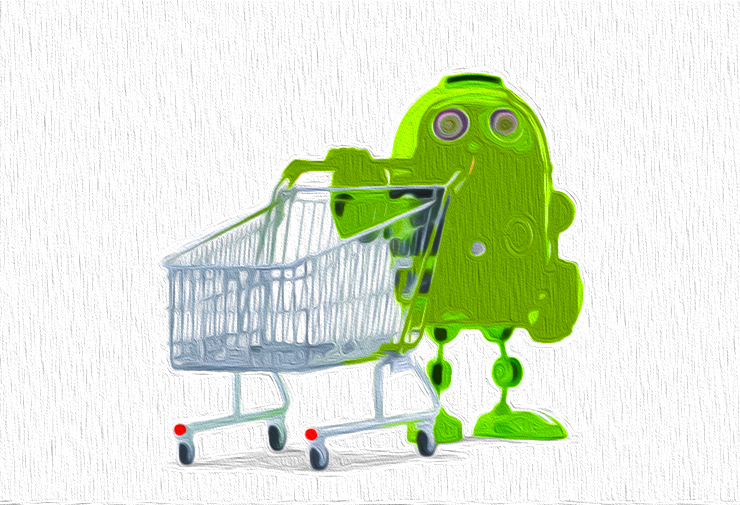Marketing and advertising have long been seen as intrusive, interruptive, and intruding. Traditional marketing and advertising include advertising on television, radio and large billboards on the roads.
Ads are now appearing on our timelines and social media feeds due to the advent of the internet and social networking. It has made it so difficult to use Instagram anymore. Does it happen to me?
Seth Godin discovered the solution to this consumer dilemma when he created the concept of permission marketing in 1999. In his book Permission Marketing: Turning strangers into friends and customers, Godin defined the term as marketing that requires consent from the consumer before you send out any information.
Seth also stated that content marketing was the only marketing left! It's one my favorite marketing quotes!
This is because they are more likely to engage with your brand if you have their approval in some way.

Permission Marketing vs. Interruption Marketing
Permission marketing gives the consumer the ability to decide. Permission marketing is based on the consumer's decision to allow the information to reach him. This alone is what makes it different from traditional interruption marketing.
Your customers can only concentrate on one thing. Over-saturating your customers with marketing materials can lead to ad fatigue. You don't want to irritate your audience, unless you are happy with a poor user experience.
-

- Source: https://blog.hubspot.com/marketing/why-people-block-ads-and-what-it-means-for-marketers-and-advertisers
Permission marketing improves the effectiveness of any marketing strategy because it focuses on prospects who are most likely to engage. Your audience can opt-in as well. The consumer gives you permission to use their information for valuable content such as whitepapers or e-books.
Permission marketing allows you to interact with your customers, as Seth Godin repeatedly stated. Because they are paying attention to you marketing, it is because they have earned your attention.
Permission marketing is everywhere. Permission targeting is one aspect that includes a consumer's social media activity (likes and favorites as well as shares). This activity is indicative of interest and, in permission marketing, it is essential. If a consumer likes a post on a brand's Facebook page, they will be more likely to continue engaging with the brand's content.
Subscribers can also be considered permission marketing. A user must give at least a portion of their contact information, usually an email address, if they opt in to receive a newsletter. These actions give a clear indication of a prospect’s interests and can help your brand attract their attention.
Permission marketing has many benefits
1. Quality leads are more likely to be referred
Your customers have expressed interest in buying your product or service. This will increase your engagement and conversion rates. These prospects are high-quality leads.
2. Increased Relevance
Your marketing strategy will be relevant because you are targeting consumers who have shown interest in your product. You can also create personalized campaigns by knowing who your target audience is and what their online habits are.
3. Lower Costs
Permission marketing can and should, for the most part be automated. Many permission marketing tools, such as email marketing automation, can be used to improve efficiency and reduce variable costs associated with permission marketing campaigns.
4. Building loyalty and reputation
Permission marketing is an ongoing interaction. Even if permission has been granted, it doesn't end.
Targeting them at the right time will make it less likely for them to ignore or block your marketing strategy. It is a smart idea to establish a good reputation among your customers.
Based on data collected from clients, we found that content marketers who work with existing customers have a 4x increase in Cusrtomer Value (CLV).
Permission Marketing: Challenges
1. How to get to Yes
Permission marketing focuses on getting consent from consumers. What would they do to get that “yes”? You must communicate the value of your offer without being pushy.
Communicate your Unique Selling Proposition (USP). Your product or service will make their lives better. You can grab their attention immediately by creating a compelling value proposition.
2. Fewer Leads
Permission marketing is likely to bring in fewer leads than traditional broadcast techniques because users must opt-in. However, your increased conversion rates can offset any possible drop in leads.
3. Timing issues
Permission marketing can take longer than normal to turn around. Because you are only targeting a small portion of the people you targeted before, this is why permission marketing can take longer. Again, increased conversion rates will more than compensate for any lead time lag.
In conclusion
Permission marketing gives your customer the green light. This marketing strategy works well for most companies due to the above benefits, but also because most people are tired of using disruptive marketing techniques. We need to change the customer's outlook so that we can give them what they want.
Marketing automation is important! These tools will help you scale your permission marketing efforts at a personal level.
Permission Marketing: Do You Love It or Hate It? Marketing Insider Group published the first version of this article.
————————————————————————————————————————————–
By: Michael Brenner
Title: Permission Marketing: Love it or Hate it?
Sourced From: marketinginsidergroup.com/content-marketing/permission-marketing-love-hate/
Published Date: Tue, 28 Jun 2022 14:00:00 +0000